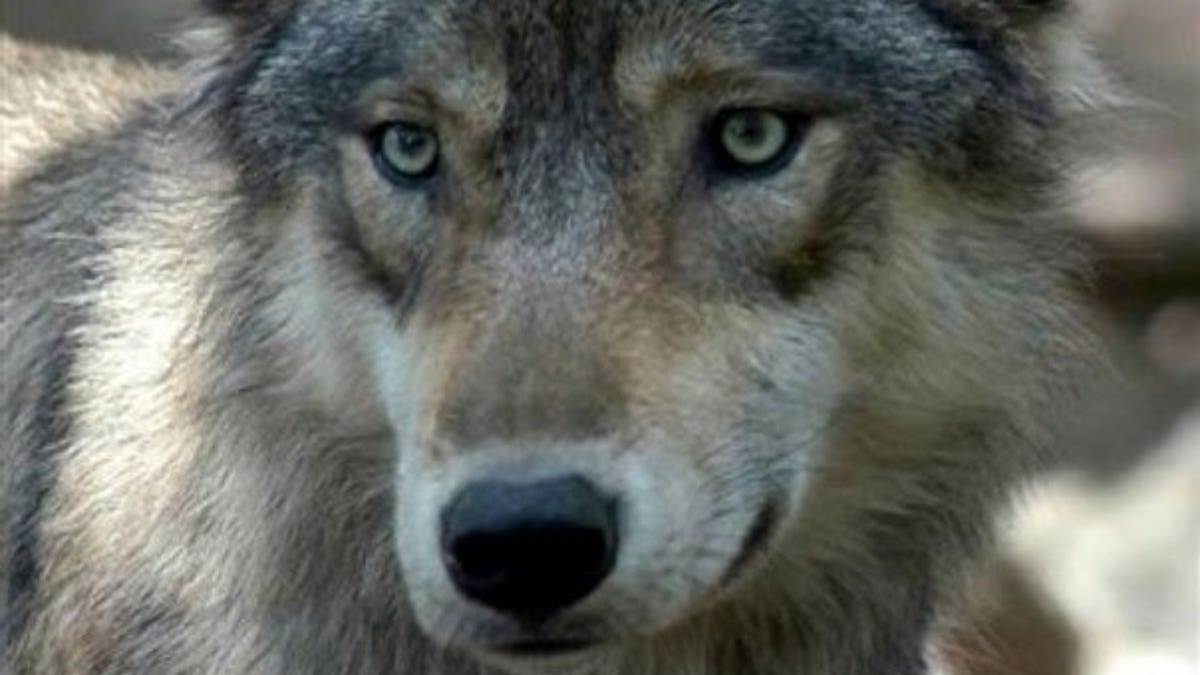
This July 16, 2004 file photo shows a gray wolf at the Wildlife Science Center in Forest Lake, Minn. More than 4,000 gray wolves in the upper Great Lakes region are going back on the federal endangered species list -- at least temporarily (AP). (AP)
Fairy shrimp and wolves are among the 1,410 animals named on the endangered species list -- and if one turns up on private property, the government could dictate how property owners use their land.
The Endangered Species Act was passed in 1973 with laudable goals, to protect plants and animals facing possible extinction, but over the years the list of species in trouble has grown significantly.
The list contained 271 species in 1979 but had more than doubled to 615 by 1989. In the 1990s, several advocacy groups fought relentlessly to expand the list, and the additions doubled again, totaling 1,300 by 1999. Over the last 10 years, additions pushing the list over 1,400 included species from grizzly bears to certain deer to New Mexican ridge-nosed rattlesnakes.
According to the act, the government can dictate how private property is used if it's home to an endangered species -- and can even require landowners to help pay for programs that preserve certain endangered wildlife.
Critics argue that the government also can devalue the land to the point of worthlessness.
"There are some species that are legitimately endangered, but I would argue that what's more endangered is private property," Rob Gordon, a senior adviser at the Heritage Foundation, a conservative think tank based in Washington.
"It's a very effective land-use control tool," Gordon said of the act.
Critics like Gordon said that landowners can be greatly restricted by what they can or cannot do with the land -- including cutting down trees, clearing brush or affecting a water source that might be important to the species' survival.
There are "things people need to do on a day-to-day basis for ranching or farming or even making an addition to their home," he said.
But proponents of the act claim it doesn't go far enough.
"From my perspective, I would like the Endangered Species Act to be more protective -- to actually stop more things," said Bill Snape, senior counsel at the Center for Biological Diversity.
"We have limited amounts of money in our federal government. We should not be paying ranchers or certain oil and gas interests," Snape told Fox News. "We shouldn't be paying them with federal money to harm endangered species."
FULL COVERAGE: Private Property Rights
Fox News' Shannon Bream contributed to this report.




